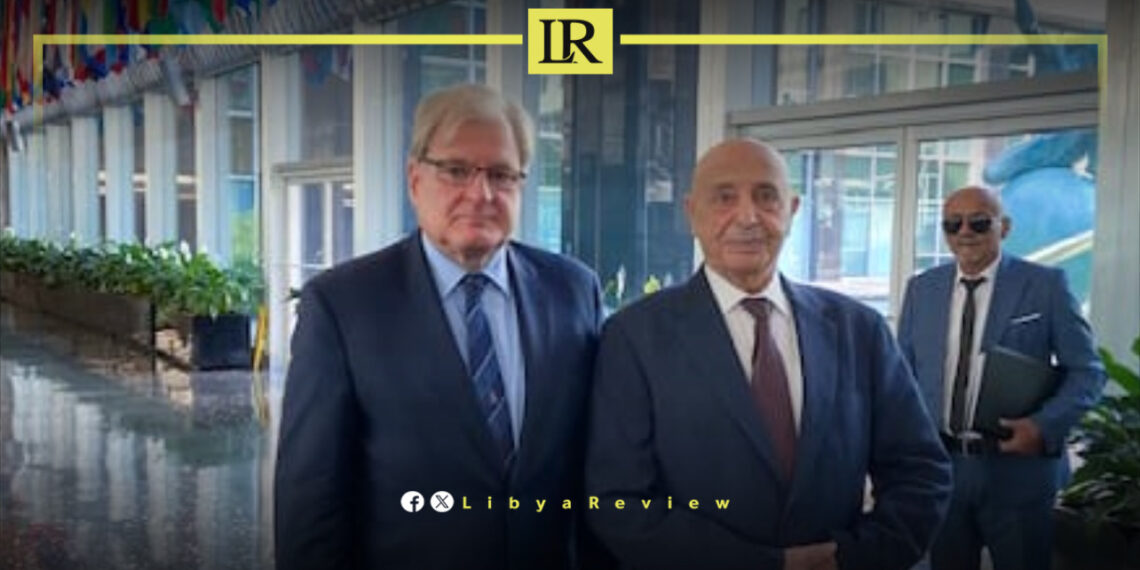U.S. Special Envoy Ambassador Richard Norland expressed pleasure in welcoming Libyan House of Representatives Speaker Ageela Saleh during his visit to Washington.
The meetings, held at the U.S. State Department, provided a valuable opportunity to reinforce U.S. support for the technocratic integrity of the Central Bank of Libya. Ambassador Norland also urged all parties to collaborate during this critical period to enhance U.N.-facilitated negotiations aimed at reviving the political process leading to elections.
During his visit, Speaker Saleh discussed various aspects of Libya’s ongoing transition and the challenges facing the country, emphasizing the need for a united effort to ensure a stable and democratic future for Libya. The U.S. reiterated its commitment to supporting Libya’s sovereignty and its democratic transition, highlighting the importance of transparent financial institutions and inclusive governance as pillars of stability and progress.
The meetings underscored the international community’s focus on Libya as it navigates complex political dynamics and gears up for critical national elections. The engagement between the U.S. and Libyan officials was seen as a step forward in bolstering international support for Libya’s governmental reforms and electoral processes.
Libya has been in chaos since a NATO-backed uprising toppled longtime leader Muammar Gaddafi in 2011. The county has for years been split between rival administrations.
Libya’s economy, heavily reliant on oil, has suffered due to the ongoing conflict. The instability has led to fluctuations in oil production and prices, impacting the global oil market and Libya’s economy.
The conflict has led to a significant humanitarian crisis in Libya, with thousands of people killed, and many more displaced. Migrants and refugees using Libya as a transit point to Europe have also faced dire conditions.
The planned elections for December 2021 were delayed due to disagreements over election laws and the eligibility of certain candidates. This delay has raised concerns about the feasibility of a peaceful political transition.
Despite the ceasefire, security remains a significant concern with sporadic fighting and the presence of mercenaries and foreign fighters. The unification of the military and the removal of foreign forces are crucial challenges.


